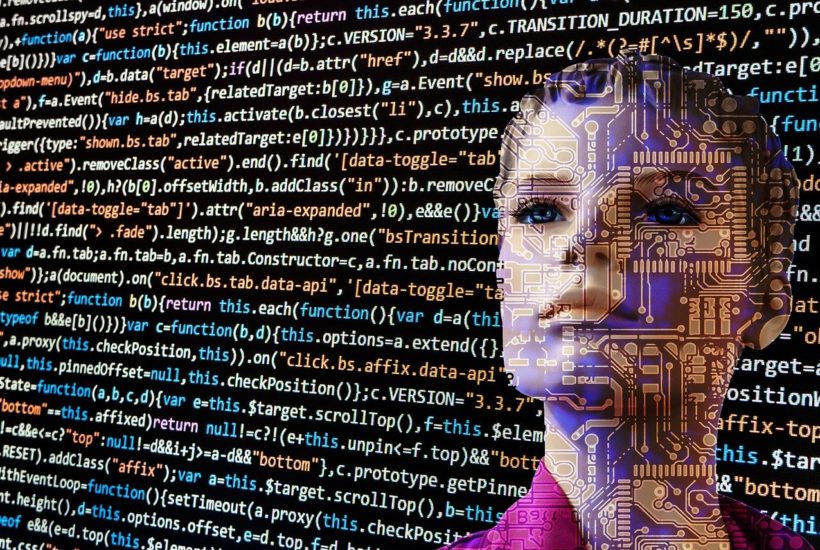Featured
AI could reduce greenhouse gas emissions by 10% in ten years
A Boston Consulting Group survey explains that applying AI to processes with the highest consumption works even after just one year and can reduce greenhouse gas emissions. Among other things, by integrating AI into the corporate sustainability approach, companies can achieve an overall impact of between $1.3 to $2.6 trillion in value, through additional revenue and precisely cost savings.

AI can help the world fight climate change, reducing greenhouse gas emissions by 5 to 10% in ten years and saving the environment up to 5.3 gigatonnes of carbon dioxide equivalent. Generating an impact of up to 2.6 trillion dollars in value between new revenues and cost savings for companies.
That is estimated by Boston Consulting Group, a strategic consulting giant with more than 90 offices in 50 countries and 21 thousand professionals, in the report “Reduce carbon and costs with the power of AI,” which analyzed the ability of this technology to accelerate the sustainable transformation of companies, reducing environmental impact and rapidly cutting costs, as well as generating a positive return on investment, often within just one year of its application. Thanks to this great ability to make a positive impact in reducing CO2 and greenhouse gas emissions, artificial intelligence now assumes a key role in the recovery from the post-COVID-19 crisis, as well as in the transition to a sustainable future. Among other things, by integrating AI into the corporate sustainability approach, companies can achieve an overall impact of between $1.3 to $2.6 trillion in value, through additional revenue and precisely cost savings.
Read more on the subject and find how AI could help the world reduce greenhouse gas emissions, with our companion app. The Born2Invest mobile app keeps its readers up to date with the latest business news in the world.
AI learns from experience
“The great strength of AI lies in its ability to learn from experience, exploiting massive amounts of data collected from different sources, and to be able to synthesize for humans relationships, sometimes extremely difficult to intuit, with the aim of supporting decision making processes – explains Roberto Ventura, managing director, and partner of BCG Gamma, the global team of BCG that through the adoption of AI and advanced analytics addresses the critical issues of leading companies – artificial intelligence is able to predict future issues of the entire value chain of the company, in relation to expected production levels, current efficiency efforts, and new available technologies. As a result, it can be used to consistently study, define and achieve emission reduction targets. In addition, AI can provide insights to improve the efficiency of various business processes, reducing emissions and cutting costs.”
The most involved sectors: transportation, industry, pharmaceuticals, energy
In short, by implementing smart technologies to monitor, predict and reduce you can be environmentally responsible but also improve your company’s bottom line. For example, groups can use artificial intelligence to automatically monitor emissions, gathering data from their operations and from every part of the value chain. Or AI can predict future emissions in relation to current reduction efforts, new carbon reduction methodologies, and endless other parameters. As a result, accurate reduction targets can be set, adjusted, and achieved.
“The management and optimization of emissions is a complex problem for many realities,” says Ventura, “and AI will be able to play a fundamental role in supporting companies in the fight against climate change, particularly in the sectors related to transport, industrial and pharmaceutical goods, and the energy sector. Companies can therefore use artificial intelligence to minimize the emissions and carbon footprint of their own operations but also of the entire value chain, including suppliers, transporters and end customers.”
Where to start with AI
How do you get on the path of artificial intelligence? “Aim high, start small and scale fast”: these are BCG’s suggestions for achieving concrete benefits from the application of the different solutions available on the market. In other words, companies must prioritize those processes with high energy consumption and significant costs, in order to immediately make an impact and start a process of change. So by analyzing emissions and consumption throughout the value chain, it is possible to determine precisely where to apply technology to reduce environmental impact, starting with the largest sources of emissions and energy consumption. “When developing a transformative plan involving the use of AI,” concluded Ventura, “then it is advisable to start with prototypes and pilot projects, so as to quickly test hypotheses and bring evidence of the potential of this technology. At the same time, it is useful to invest in the development of skills and technology platforms that allow these solutions to scale quickly, defining new ways of working and implementing organizational and governance models necessary to align AI with the overall strategy.”
__
(Featured image by geralt via Pixabay)
DISCLAIMER: This article was written by a third party contributor and does not reflect the opinion of Born2Invest, its management, staff or its associates. Please review our disclaimer for more information.
This article may include forward-looking statements. These forward-looking statements generally are identified by the words “believe,” “project,” “estimate,” “become,” “plan,” “will,” and similar expressions. These forward-looking statements involve known and unknown risks as well as uncertainties, including those discussed in the following cautionary statements and elsewhere in this article and on this site. Although the Company may believe that its expectations are based on reasonable assumptions, the actual results that the Company may achieve may differ materially from any forward-looking statements, which reflect the opinions of the management of the Company only as of the date hereof. Additionally, please make sure to read these important disclosures.
First published in Impact, a third-party contributor translated and adapted the article from the original. In case of discrepancy, the original will prevail.
Although we made reasonable efforts to provide accurate translations, some parts may be incorrect. Born2Invest assumes no responsibility for errors, omissions or ambiguities in the translations provided on this website. Any person or entity relying on translated content does so at their own risk. Born2Invest is not responsible for losses caused by such reliance on the accuracy or reliability of translated information. If you wish to report an error or inaccuracy in the translation, we encourage you to contact us.

-

 Business1 week ago
Business1 week agoDow Jones Stalls Near Record Highs as Inflation-Fueled Rally Awaits Next Move
-

 Fintech5 days ago
Fintech5 days agoFirst Regulated Blockchain Stock Trade Launches in the United States
-

 Africa2 weeks ago
Africa2 weeks agoAir Algérie Expands African Partnerships
-

 Cannabis23 hours ago
Cannabis23 hours agoAurora’s Electric Honeydew Debuts in Poland, But Shared Registry Raises Patient Caution
























